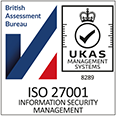Home / Terms and Conditions Product UK
Terms and Conditions Product - UK
Terms and Conditions for use of PebblePad
“The System” refers to PebblePad or its organisationally branded version REfLECT.
Overview
Creating items within any online system carriers with it a number of responsibilities and legal requirements. You need to be aware that you are responsible for your account and the legality of items stored in it. You also need to know that we will handle your information in secure and appropriate ways.
Whilst this document cannot highlight every eventuality, it does set out the key areas of responsibility and outlines how we may use your data.
If anything in this document is not clear please contact our support team (support@pebblepad.com) who will be able to pass on your communication to the most appropriate department for clarification.
Your responsibilities
Users of the PebblePad system should take care not to use it for the transmission or receipt of material which is considered to be offensive; in breach of relevant codes on harassment; wasteful of resources, or not commensurate with the provision of the system for legitimate educational or developmental purposes.
Examples of such unacceptable use may include the transmission or receipt of material which draws excessively upon resources; the transmission or receipt of materials which is to the possible detriment of the PebblePad system or is to the possible detriment of other users; the transmission of text or images which may be considered abusive or offensive; other unacceptable conduct which may reflect adversely upon the user, other PebblePad users or the PebblePad system itself. The provision by a user of explicit or cryptic links to such material stored elsewhere on the Internet is also unacceptable.
Any transmission of materials by a user carries the name of the user. Any act or attempt by a user to transmit via the PebblePad system materials which purports, falsely, to have emanated from another user, person or organisation shall be subject to appropriate sanctions.
In view of the possibilities of introducing computer programs which may cause damage or disruption to the PebblePad system, the downloading of programs via the system is prohibited. However, in the event that a user does introduce a disruptive program by such means, and whether this is done knowingly or not, the right is reserved, in addition to any other sanctions which may apply, to recover from the user responsible for downloading the software, the cost of any remedial action necessary, together with any other direct costs to cover, for example, the re-creation of data or business interruption.
If you are the recipient of any PebblePad item which you consider to be offensive; improper or unlawful please inform Pebble Learning using the “report inappropriate content” link on the bottom of the item.
PebblePad Monitoring and Sanctions
Whilst telecommunications traffic passing through this system is not routinely intercepted or monitored all users of these facilities are expected to use them responsibly and in compliance with this Code. Within the provisions of the law the right is reserved at any time to intercept and monitor communications in accordance with the Regulation of Investigatory Powers Act; The Telecommunications (Lawful Business Practise)(Interception of Communications) Regulations and any other relevant legislation. Such interception/monitoring shall normally only take place with the express written approval of a relevant authority but may be undertaken without any prior notice to the users of the PebblePad system.
Shared or published PebblePad items which are reported by others to be in contravention of any part of this code may be moderated by the PebblePad system administrator or a delegated person.
Any suspected breach of the provisions of this code may result in the immediate withdrawal of PebblePad access privileges and the suspension of your account, pending investigation. In addition to the sanctions applicable to a breach of the law, any actual breach of the provisions of this code may result in the temporary or permanent withdrawal of your PebblePad account.
Advertising and commercial use of PebblePad
Standard educational and personal use of PebblePad does not does not permit you to create commercial websites, place or distribute advertisements or engage in any other marketing or promotional pursuits which is in the nature of a commercial activity. If you intend on using PebblePad for commercial purposes please contact our support team support@pebblepad.com
Your Privacy and Security
PebblePad is a Personal Learning Space, with each person having ownership and control over their account. As we take your privacy and security very seriously, nobody, including an administrator, can see inside another person’s PebblePad account without using the account username and password. In order to maintain your privacy you must keep your login details strictly confidential.
You are solely responsible for maintaining the strict confidentiality of your login details and for any improper use, liabilities, losses or damages incurred as a result of your failure to do so. In the event of ID theft you should contact our support personnel or if you have an organizational account your organization support team to inform them of issues relating to your privacy and security. Please note we are not liable for any unauthorised use of the system.
We do all we can to ensure your security; for example, when PebblePad is set up we apply a number of security options to maintain the highest level of privacy. These include access to the system being via a secure SSL connection and user details being encrypted when a user is logging in. Installations are checked using Tamper tools to ensure passwords cannot be intercepted and inspected.
Your data
In order to provide organizational reporting facilities we reserve the right to use data mining techniques to capture anonymous overview information about your account activity. This will not involve looking at any specific content but will be used to provide aggregated data about general use of the system. For example this may be a report on the number of video files loaded into PebblePad or the number of assets of a particular type. No user or their content will be identified as part of this data mining. We will not report on the number of assets in your account or the frequency of you accessing the system to any third party.
System Development
We strive to make PebblePad the best it can be and always welcome suggestions for improvement from users or other interested parties. If we decide to implement a suggestion, feature request or develop a part of the system as a paid for service, we maintain the unrestricted right of ownership over such features and the rights to use the features as a part of the PebblePad system, or other systems developed by Pebble Learning, in perpetuity. We reserve the right to update, modify and change features of the system without direct notification.
Limitations of Damages
In no event shall Pebble Learning be liable for any damages, including loss of business, loss of opportunity, loss of data, loss of profits or for any other indirect or consequential loss or damage whatsoever that is associated with systems external to PebblePad as an indirect or secondary consequence of any act or omission of the Licensor whether such damages were reasonably foreseeable or actually foreseen.
Our total liability to any user shall not exceed the total of all sums paid by the user or their organization on their behalf.
Statutory and other provisions of English Law
Whilst the use of the Internet is a broadly unregulated medium, there are a number of statutory and other legal provisions which may impact upon its use. The following are a selection of provisions for which users of this installation will need to be aware; they are, however, by no means exhaustive. Users should expect that any discovery of a breach of the law arising from use of the System will be referred to the appropriate authorities.
Computer Misuse Act 1990
The Computer Misuse Act 1990 makes it a criminal offence to access, or attempt to access computer material without proper authority or to make unauthorised modification of computer material. Persons convicted of an offence under the Computer Misuse Act are subject to a maximum of 5 years’ imprisonment or a fine or both. In the context of The System use, it is likely that the following examples would be considered illegal:
- Accessing restricted material without proper authority.
- Provision of any material, such as access codes or ‘hacking’ instructions which enables others to gain unauthorised access to protected or private areas of The System.
- Knowingly receiving (or using) any material from a user who has gained unauthorised access to The System.
- Unauthorised modification of The System or data stored on The System.
The Copyright Designs and Patents Act 1988
It is an offence under this Act to copy software, images, sounds or other Internet materials without authority. It is immaterial whether such unauthorised copying is done with a view to personal convenience or for monetary gain. Unlimited fines and up to two years’ imprisonment may be imposed on offenders.
The use of any unauthorised or unlicensed software, images, sounds or other Internet materials should not be tolerated and users may be required to provide evidence that use of any materials contained within The System is lawful.
Data Protection Act 1998
This Act prohibits the holding, processing or disclosure of personal information data about others on a computer or in a ‘structured’ manual form, unless the data user is properly registered with the Information Commissioner and observes the data protection principles. In view of the complexity of the legislation, all users of The System should avoid establishing, holding or processing any personal data concerning other persons: this includes both ‘uploading and downloading’ of such data via the Internet.
Race Relations, Disability Discrimination and Sexual Discrimination
Discrimination on the grounds of race, colour, nationality, ethnic or national origin, disability or gender is unlawful under the provisions of legislation dealing with these matters. Any material published or received via The System which discriminates or encourages discrimination is in contravention of the legislation.
Child Protection Legislation including the Protection of Children Act 1978, the Criminal Justice Act 1988, the Criminal Justice and Public Order Act 1994 and the Criminal Justice and Immigration Act 2008
It is a criminal offence to possess pornographic or obscene material of or involving minors, material considered to be excessively violent or an extreme pornographic image. In the context of the Personal Account it would apply to the transmission, receipt and storage of text, audio and graphic images.
Criminal Justice and Public Order Act 1994
This miscellany of legislation includes a consolidation of provisions for the protection of minors by making it a criminal offence to possess pornographic or obscene material of or involving minors, or material considered to be excessively violent. In the context of The System it would apply to the transmission, receipt and storage of text, audio and graphic images.
Laws of Defamation
Any publication of a statement, comment or innuendo about another individual or organisation which cannot be justified at law may render the author liable to an action for defamation. In the context of use of The System, the author of the material is responsible all actions, proceedings, claims and costs resulting therefrom. A disclaimer to this affect is accessible from each published output of The System.
Obscene Publications Act 1959
The publication (whether for gain or not) of material intended to be read, heard or looked at which is such as to tend to deprave and corrupt persons having access to the publication is a criminal offence which carries a maximum sentence of three years imprisonment. In the context of use of The System, the author of the material is responsible all actions, proceedings, claims and costs resulting therefrom. A disclaimer to this affect is accessible from each published output of The System.
Telecommunications Act 1984 & Communications Act 2003
A person who sends a message or other matter that is grossly offensive, indecent, obscene or menacing in character via the public telecommunication system or sends a false message for the purpose of causing annoyance, inconvenience or needless anxiety to another shall be guilty of a criminal offence. The Internet makes use of the “public telecommunication system”. A breach of this Act will result in a substantial fine and/or imprisonment.
International Law
Users of The System should be aware that any material which they create and transmit is potentially accessible World-Wide and that such material must not therefore contravene any international laws or treaties. Users should be aware that material lawfully provided in their local territory but accessed in another country may constitute an offence within that recipient country.
© 2018 Pebble Learning







